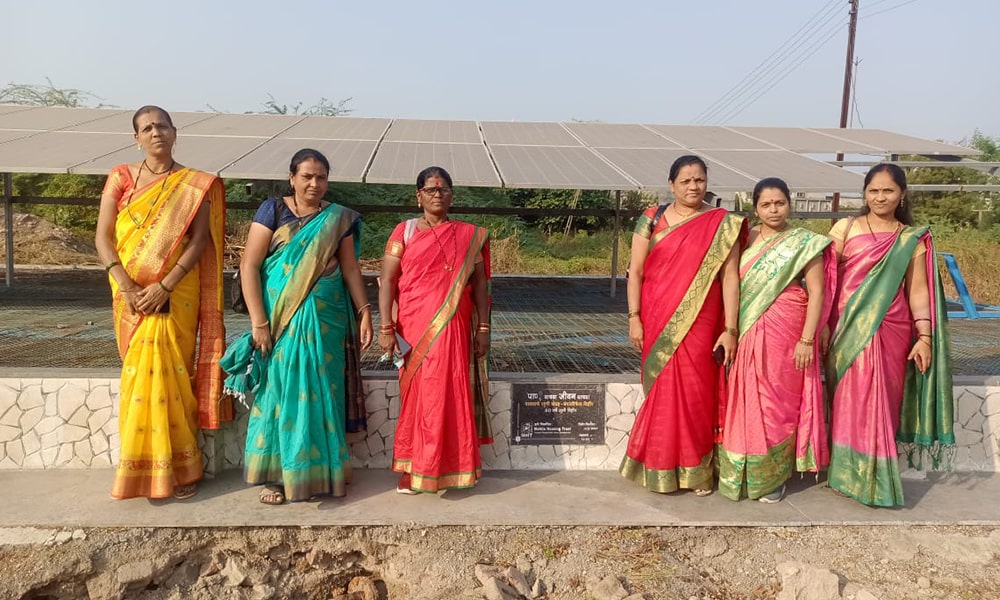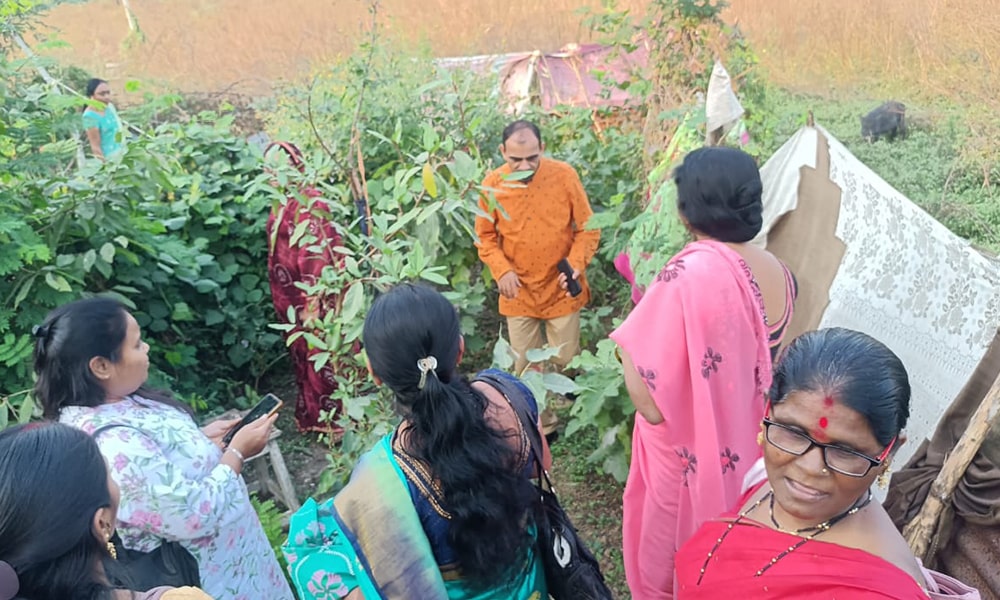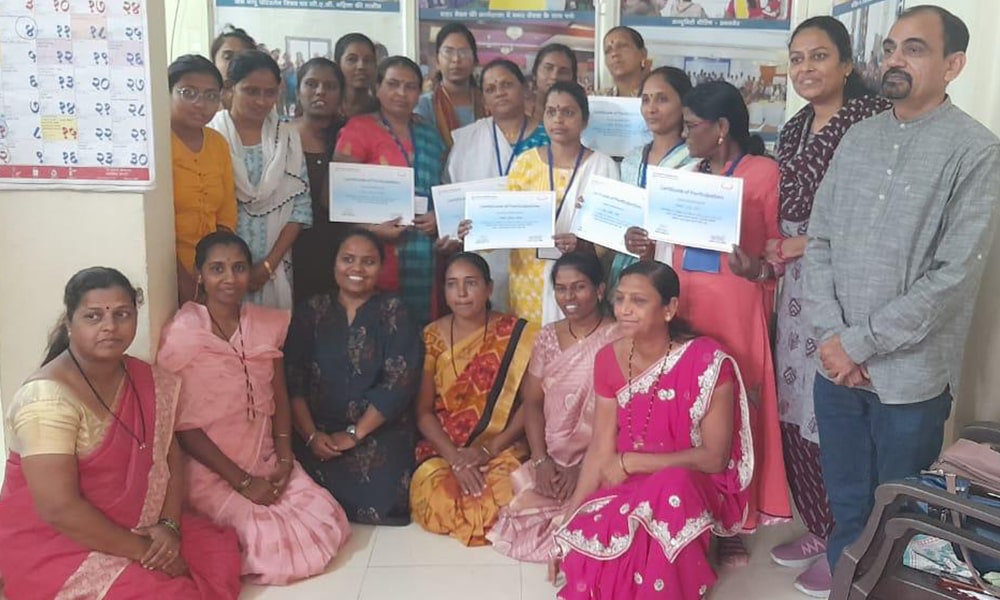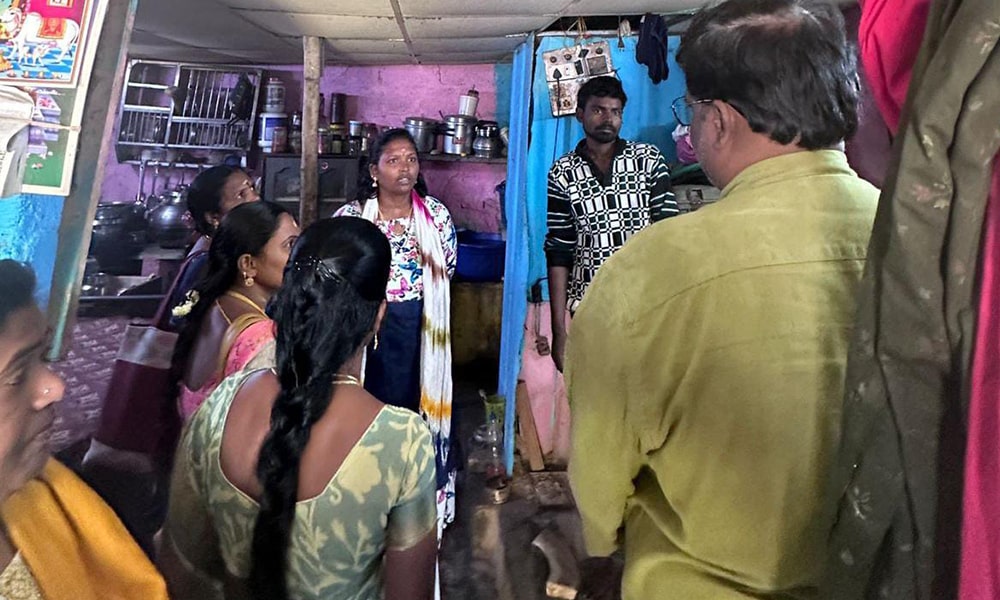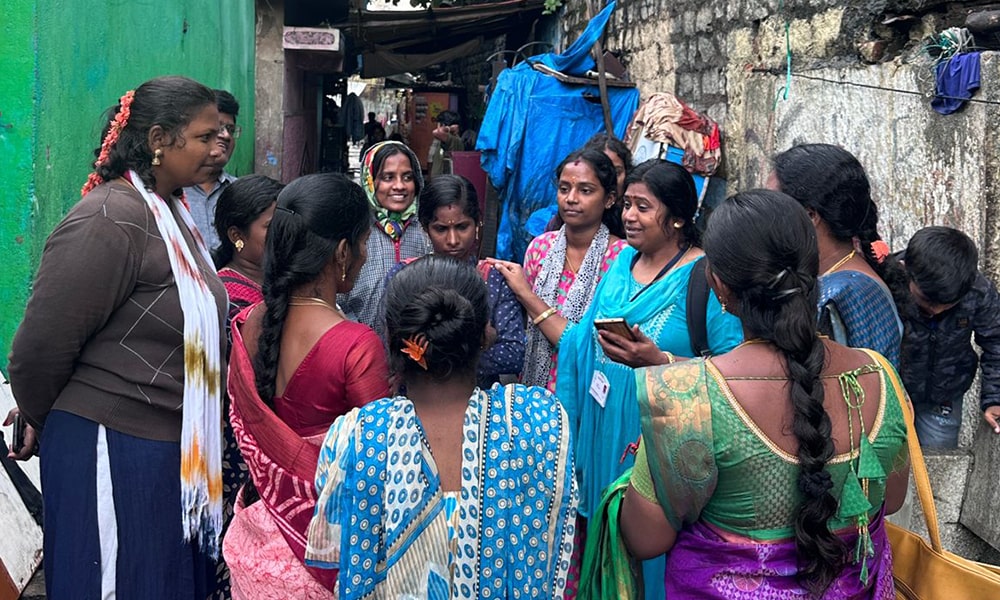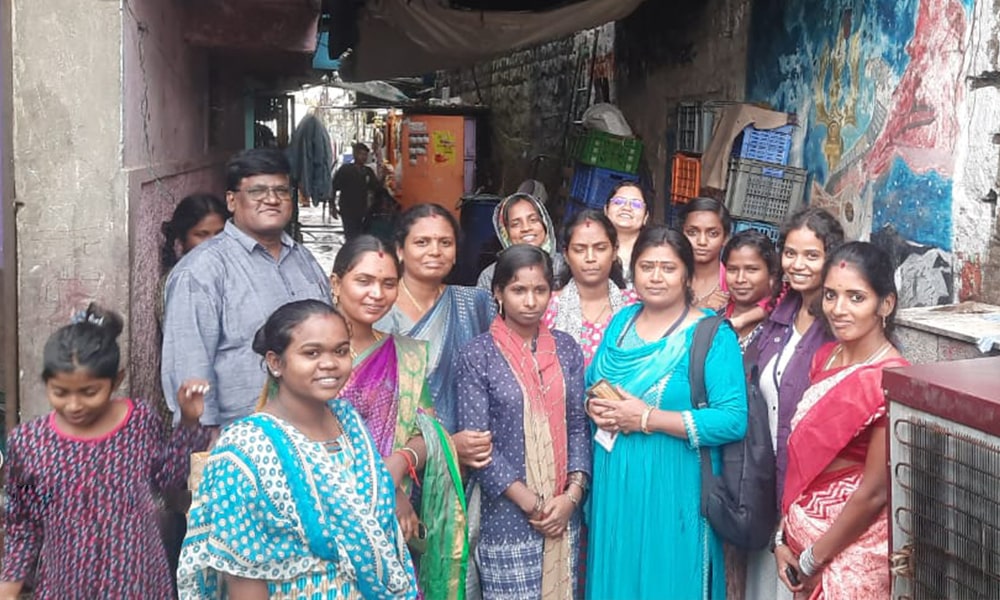By: Richa Macsuedon, HomeNet South Asia Senior Programme Coordinator
Climate change and its devastating impacts affect workers everywhere, but its consequences on home-based workers’ lives and livelihoods often go unseen. HomeNet South Asia’s recent exposure visits with Mahila Housing Trust provided perfect avenues for them to explore how technological innovations and grassroots action are combating the effects of climate change in India, spearheaded by women leaders and community groups.
The objective of these visits was to address the impact of climate change, explore the innovative models of urban resilience that Mahila Housing Trust has developed, and gain hands-on knowledge of the solutions identified to mitigate environmental challenges at the local level.
On 26-27 November 2024, home-based worker leaders from Learn Mahila Kamgaar Sanghatana (LMKS), Nasik, Maharashtra, went on a collaborative exposure visit to Mahila Housing Trust’s project in the town of Amalner, Maharashtra. Here, they engaged with the Vikasinis, Community Action Groups (CAGs), water managers, and Paryawaran Sakhis who are spearheading leadership action at the grassroots level. They also observed the various sustainable innovations that are helping to address immediate as well as broader environmental challenges.
On 3-4 December 2024, home-based worker leaders from our affiliate SAVE, Tiruppur, visited Mahila Housing Trust’s project site in Bangalore, Karnataka. While there, they received an overview of community-based models to tackle the urban impact of climate change.
This initiative gave the visitors a chance to explore various technological innovations, such as solar technology and rainwater harvesting systems that are in place, and offered insights into how these solutions create grassroots benefits. They attended a Vector-Borne Disease (VBD) Drive where awareness campaigns and prevention measures were discussed. At every step, they interacted closely with Community Action Groups (CAGs) and beneficiaries. The visit wrapped up with meetings with the CAGs to better understand their participatory planning models and to hold collaborative discussions on sustainable solutions and techniques.


